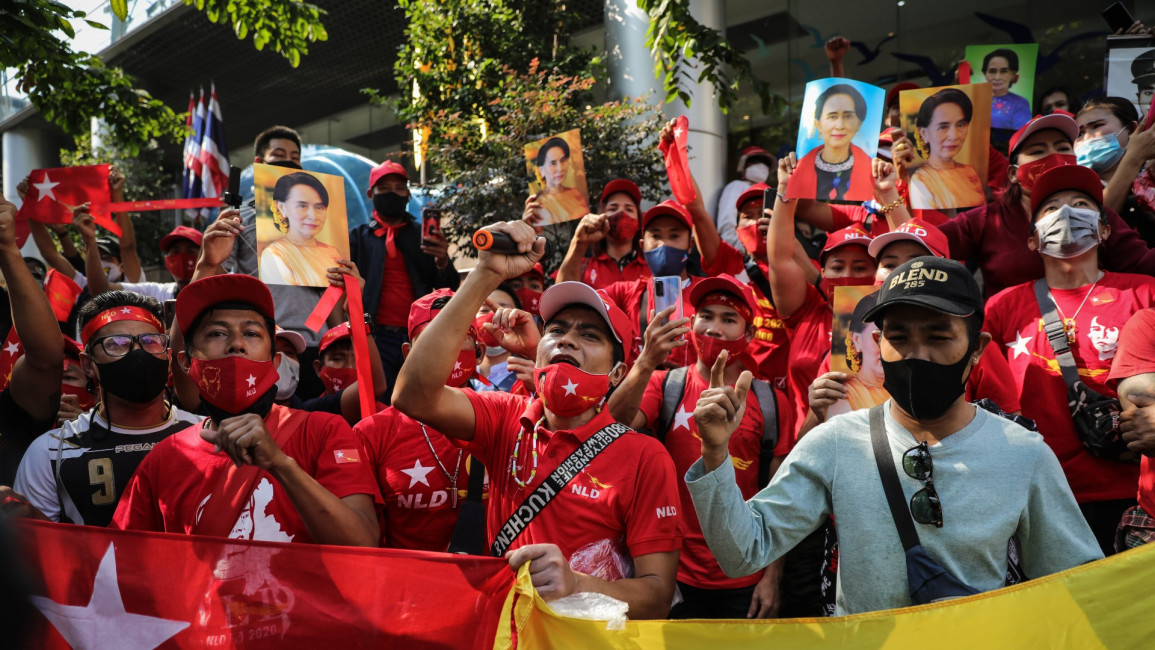The country's military seized power on Monday, detaining democratically elected leader Aung San Suu Kyi and declaring a one-year state of emergency.
The intervention followed weeks of rising tensions between the military - which ruled the country for nearly five decades - and the civilian government over elections in November last year that Suu Kyi's National League for Democracy (NLD) won easily.
"The situation was the one we were concerned about," said Yanghee Lee, a university professor in Seoul who previously served as the United Nations Special Rapporteur on human rights in Myanmar.
A coup in Myanmar six decades ago followed by over 50 years of military rule had "greatly regressed" the country's democracy and civilian life, she added, and warned of a similar effect this time.
"It seems the citizens of Myanmar will once again make huge sacrifices through the coup," Lee told AFP.
Read also: The Rohingya crisis and Myanmar's dark road to democracy
Myanmar's November vote was only the second democratic election the country had seen since it emerged from the 49-year grip of military rule in 2011.
The NLD swept the polls and was expecting to give the 75-year-old Suu Kyi a new five-year term.
Suu Kyi is an immensely popular figure in Myanmar for her opposition to the military, having spent the best part of two decades under house arrest during the previous dictatorship.
But her international standing has been tarnished in recent years by her defence of the military's crackdown on the stateless Rohingya minority, around 750,000 of whom fled to neighbouring Bangladesh.
The military has for weeks complained that the polls were riddled with irregularities, and claimed to have uncovered more than 10 million instances of voter fraud.
It had demanded the government-run election commission release voter lists for cross-checking - which the commission did not do.
Follow us on Facebook, Twitter and Instagram to stay connected


![President Pezeshkian has denounced Israel's attacks on Lebanon [Getty]](/sites/default/files/styles/image_684x385/public/2173482924.jpeg?h=a5f2f23a&itok=q3evVtko)



 Follow the Middle East's top stories in English at The New Arab on Google News
Follow the Middle East's top stories in English at The New Arab on Google News


